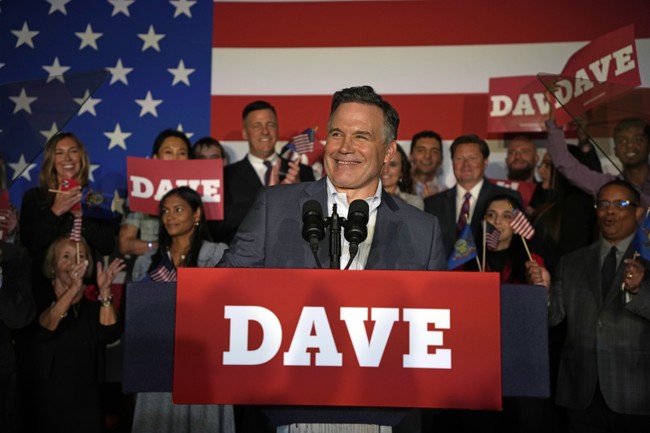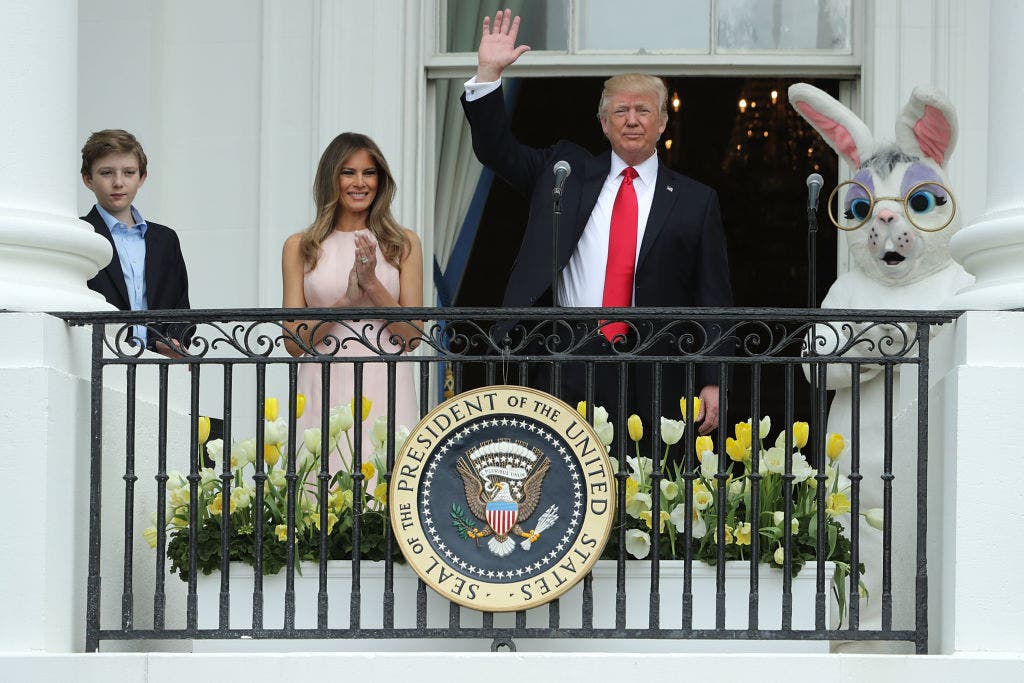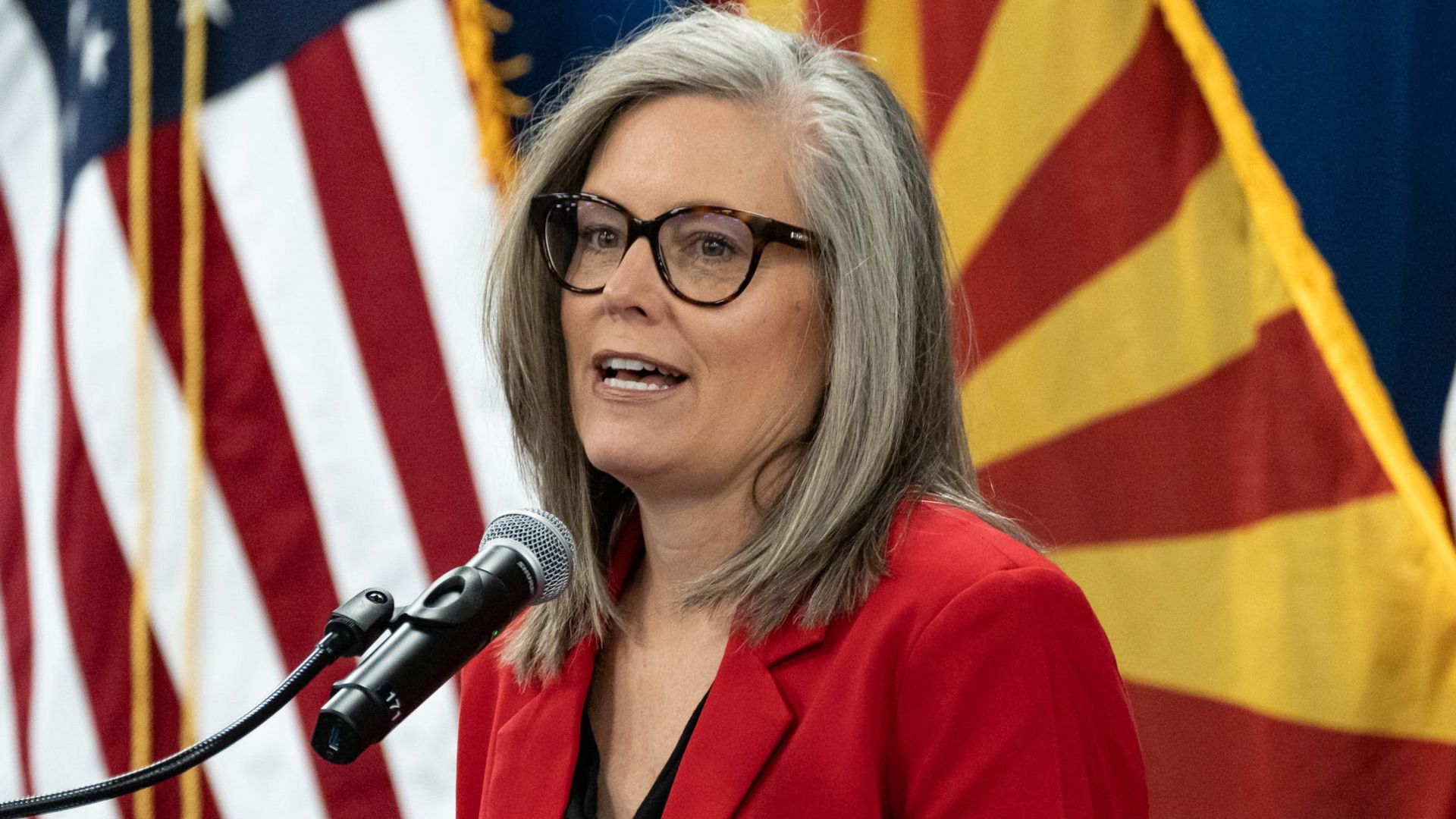In the final weeks of its tenure, the Biden-Harris administration has imposed significant new sanctions on Israeli groups while allocating hundreds of millions of dollars to Palestinian projects.
The move has drawn sharp criticism from pro-Israel advocates and raised concerns over the administration’s policy priorities.
On Monday, the administration announced sanctions on three Israeli organizations accused of “fomenting violence against Palestinians in the West Bank.”
BREAKING: The Biden-Harris administration unveiled sweeping new sanctions on Israeli Jews.
This comes just days after it awarded another $230 million in taxpayer funds to the Palestinian Authority (PA). The PA still has a policy of paying terrorists to blow themselves up. pic.twitter.com/hJipfTLPZN
— Eyal Yakoby (@EYakoby) November 18, 2024
Trump Surges To Victory – Get the Ultimate Trumpinator Bobblehead To Celebrate 2024!
The punitive measures were disclosed just days after nearly 90 congressional Democrats urged the administration to escalate actions against Israel.
Today over 80 Senators and House members, all Democrats, sent a biased and hostile letter to Biden demanding that he sanction Israeli officials and organizations.
They made no mention of Palestinian terrorism or Israel’s security needs.
How can you be pro-Israel and a Democrat? pic.twitter.com/6PHJYKoW6S
— Shelley G (@ShelleyGldschmt) November 15, 2024
These sanctions are the most expansive yet imposed, targeting groups linked to settlement activity.
Simultaneously, the administration approved an additional $230 million in funding for Palestinian humanitarian projects in the West Bank and Gaza Strip.
This brings the total aid to Palestinians to more than $2 billion since Hamas’s October 7 terrorist attack on Israel.
Critics argue that this funding indirectly supports Hamas, which controls Gaza and has engaged in repeated attacks on Israel.
The State Department stated the sanctions were aimed at “violent Israeli individuals and entities,” but specifics on the allegations raised concerns.
Two of the targeted organizations are reportedly accused of little more than providing construction equipment to settlements, which the State Department claims are illegal under international law.
Israeli legal expert Eugene Kontorovich criticized the sanctions as unprecedented in their scope. “Usually, sanctions target those responsible for severe wrongdoing, such as terrorist financing, nuclear proliferation, or large-scale human rights abuses,” Kontorovich wrote in the New York Post.
“The new sanctions break this mold by targeting Israeli Jews in the West Bank accused of property crimes and vandalism.”
The administration’s actions appear to have exempted Palestinian organizations with ties to terrorism, including groups that could have been penalized under existing anti-terror statutes.
Additionally, the administration has relaxed enforcement of sanctions against Iran, a primary sponsor of Hamas.
The $230 million in U.S. taxpayer funding for Palestinian humanitarian efforts has added to concerns among pro-Israel lawmakers and organizations.
Critics argue that such funding enables Hamas to maintain control over Gaza and diverts attention from addressing the root causes of terrorism in the region.
Despite ongoing violence against Israel, the administration has prioritized aid to Palestinians over addressing Israeli security concerns.
The Trump administration maintained a firm stance against funding entities linked to Hamas and reduced aid to Palestinians, citing transparency and anti-terror concerns.
During Trump’s presidency, Palestinian violence in the West Bank was significantly reduced, and peace accords were brokered with several Arab nations.
As President-elect Donald Trump prepares to return to office, the shift in U.S. policy under Biden has set the stage for a potential reversal.
Trump’s administration is expected to reassert its pro-Israel stance and address concerns raised by the outgoing administration’s policies.
The Biden-Harris administration’s approach, characterized by sanctions on Israeli groups and increased aid to Palestinian projects, has deepened tensions in U.S.-Israel relations and fueled debate over the efficacy and implications of its Middle East strategy.
The opinions expressed by contributors and/or content partners are their own and do not necessarily reflect the views of LifeZette. Contact us for guidelines on submitting your own commentary.
Read the full article here


![Biden-Harris Administration Sanctions Israelis, Sends $230 Million To Palestinians [WATCH] Biden-Harris Administration Sanctions Israelis, Sends $230 Million To Palestinians [WATCH]](https://www.lifezette.com/wp-content/uploads/2024/11/2024.11.19-05.32-lifezette-673ccbaba4c08.jpg)


![Liberal Heckler Gets Reality Check From Nancy Mace in Public Meltdown [WATCH] Liberal Heckler Gets Reality Check From Nancy Mace in Public Meltdown [WATCH]](https://www.lifezette.com/wp-content/uploads/2024/09/2024.09.20-01.17-lifezette-66ed75e0c4275.jpg)




![Liberal Pope and JD Vance Hoax Falls Apart Within Hours [WATCH] Liberal Pope and JD Vance Hoax Falls Apart Within Hours [WATCH]](https://www.lifezette.com/wp-content/uploads/2025/02/2025.02.04-04.23-lifezette-67a23efc33021.jpg)